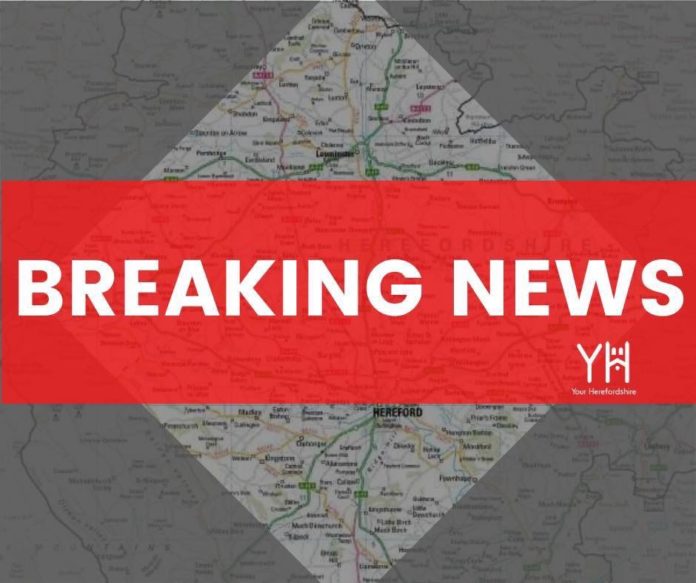Plans for a Hereford Bypass could be boosted after the Government confirmed it will be spending £4.7 billion of reallocated HS2 funding in the Midlands and the North.
Both the Conservatives and Liberal Democrats in Herefordshire have pushed for plans for a Hereford Bypass to be back on the table after being scraped by the previous Independent / Green administration just a couple of years ago.
The plans may receive a boost, with the government confirming that some of the new funding would be allocated to building new roads.
From the UK Government:
£4.7 billion of reallocated HS2 funding invested directly into the North and Midlands through the Local Transport Fund to improve local connections
Local leaders in smaller cities, towns and rural areas empowered for the first time to invest in transport upgrades that matter the most to their communities
Comes alongside £8.3 billion to resurface roads across the country, £1 billion to improve bus services in the North and Midlands, and £200million to extend the £2 bus fare cap across England – all from reallocated HS2 funding
Comes as Prime Minister hosts Cabinet meeting in Yorkshire and the Humber
Millions of people in the North and the Midlands will benefit from better public transport, reduced congestion and upgraded local bus and train stations thanks to the new £4.7 billion Local Transport Fund announced today (Monday 26 February).
Prime Minister Rishi Sunak and Transport Secretary Mark Harper have confirmed that the North will receive £2.5 billion and the Midlands will receive £2.2 billion from April 2025 to improve local transport connections that so many people rely on every day, particularly across smaller cities, towns, and rural areas.
This investment – announced as part of Network North – will deliver an unprecedented long-term funding uplift across the North and Midlands over seven years.
It’s the first transport budget of its kind that’s specifically targeted at smaller cities, towns and rural areas and empowers local people and local leaders to invest in the transport projects that matter most to their communities – helping create jobs, grow the economy, and level up the country.
Over the 7 years as a whole this funding will be on average at least 9 times more than these local authorities currently receive through the local integrated transport block which is the current mechanism for funding local transport improvements in their areas.
The Local Transport Fund will be made available from 2025 to give local authorities enough time to develop their funding plans and prepare to hit the ground running to ensure they are delivered as soon as possible.
It comes as the Prime Minister is set to chair a Cabinet meeting in Yorkshire today where he is expected to call on ministers and MPs to hold local authorities to account to ensure the funding is used appropriately and that the voices of local people are heard when decisions are made on where this funding goes and how this funding is spent.
Prime Minister Rishi Sunak said:
“We have a clear plan to level up our country with greater transport links that people need and deliver the right long term change for a brighter future.
“Through reallocating HS2 funding, we’re not only investing billions of pounds directly back into our smaller cities, towns and rural areas across the North and Midlands, but we are also empowering their local leaders to invest in the transport projects that matter most to their communities – this is levelling up in action.”
The Local Transport Fund will deliver a new era of transport connectivity.
This unprecedented investment will benefit more people, in more places, more quickly than HS2 ever would have done, and comes alongside the billions of pound worth of funding we’ve already invested into our roads, buses and local transport services across the country.
This investment will give local authorities long term certainty to invest in transformative and ambitious transport improvements from 2025 through to 2032 including:
Building new roads and improving junctions
Installing or expanding mass transit systems
Improving roads by filling in potholes and better street lighting for personal safety
Improving journey times for car and bus users by tackling congestion
Increasing the number of EV chargepoints
Refurbishing bus and rail stations
Improving our streets so they are safer to walk children to school and increasing accessibility for all
To ensure local authorities can make the most of this unprecedented funding, the department will publish advice for local councils and transport authorities to help them develop ambitious plans to improve local transport infrastructure in their areas.
Councils will work with local MPs and will be held to account by the government as well as their communities to make sure the money is spent promptly and effectively.
Local councils will be expected to publish their delivery plans for which projects they wish to invest in.
The funding comes as devolution deals now cover nearly 34 million, or 60% of the English population – up from 41% since the first major levelling up plan 2 years ago, as the government continues to empower local leaders.
Transport Secretary Mark Harper said:
“Today’s £4.7 billion investment is truly game-changing for the smaller cities, towns, and rural communities across the North and the Midlands and is only possible because this government has a plan to improve local transport and is willing to take tough decisions like reallocating funding from the second phase of HS2.”
This funding boost will make a real difference to millions of people, empowering local authorities to drive economic growth, transform communities, and improve the daily transport connections that people rely on for years to come.
Today’s funding is directed to the North and Midlands because the majority of HS2 savings are specifically from those regions. The Local Transport Fund is also specifically for communities in the North and Midlands which are outside City Regions which receive City Region Sustainable Transport Settlements (CRSTS).
The new funding allocations means neighbouring authorities who were not eligible for CRSTS can now drive forward similar infrastructure improvements, and all local authorities in the North and Midlands will now have long-term settlements from Network North to boost local transport.
The North East is separately receiving £3.7 billion from CRSTS from now until 2032, which includes an uplift of more than £1 billion from Network North, boosting local transport across the Tees Valley and the North East.
Lord Patrick McLoughlin, Chair of Transport for the North, said:
“We welcome this funding for our local transport areas as a sign of progress towards transforming the north to a more inclusive, sustainable and better-connected region. By having greater clarity on the funding that’s available, and consolidating funding streams, it helps remove inertia and accelerates delivery on the ground.”
TfN look forward to working with government and local leaders, because we know that the travelling public will get better results the more locally the decisions are made on how those services should be provided.
Maria Machancoses, Chief Executive of Midlands Connect, said:
“This funding represents a significant investment in our region’s infrastructure.
“The Midlands contributes more than £90billion to the UK economy, and to boost that even more, we need reliable transport networks and investment in new technology.
“We welcome this announcement and the improvements it will bring for our communities and businesses across the Midlands, and we will continue to work with government and support our local authorities, to ensure these vital Network North transport upgrades are delivered.”
This investment demonstrates our commitment to reinvest all of the £19.8 billion from the Northern leg of HS2 in the North and all of the £9.6 billion from the Midlands leg in the Midlands, while the £6.5 billion saved through the new approach at Euston will be spread across every other region in the country.
As part of Network North, we have also committed to delivering the Midlands Rail Hub by increasing investment to £1.75 billion to improve journey times, capacity and frequency of services across the East and West Midlands. We will also enable the West Yorkshire Mayor to take forward a £2.5 billion mass-transit metro in West Yorkshire.
We’ve committed £12 billion towards better connecting Manchester to Liverpool. This would allow the delivery of Northern Powerhouse Rail as previously planned, including high-speed lines.
But we will work with local leaders to agree whether they wish to suggest other ways to achieve the objectives with that £12 billion.
£100 million will also be shared across the North and Midlands to support the development and rollout of contactless and smart ticketing, supporting seamless travel by enabling contactless or smartcard payment.
Savings at Euston ensure the rest of the country receives extra transport investment too from our decision to cancel HS2 Phase 2. Every part of the country is set to benefit from the decision to reallocate funding from HS2.
We’re already delivering the biggest ever increase in funding for local road improvements with an extra £8.3 billion, enough to resurface more than 5,000 miles of local roads across England, with the first tranche of funding already being delivered right from this financial year.
As part of this, we’re providing an additional £2.8 billion to resurface roads in the East, South-East and South-West England and London.
We’ve also invested over £200 million to extend the £2 bus fare cap in England outside London until the end of 2024 and will spend £1 billion to improve bus services in the North and the Midlands, with £150 million delivered from April this year.
Since the £2 bus fare cap was introduced across England on 1 January 2023, millions of passengers have benefited from lower fares.
Taken together, these investments are all part of the government’s plan to build a brighter future for generations to come by levelling up transport infrastructure across the country.




